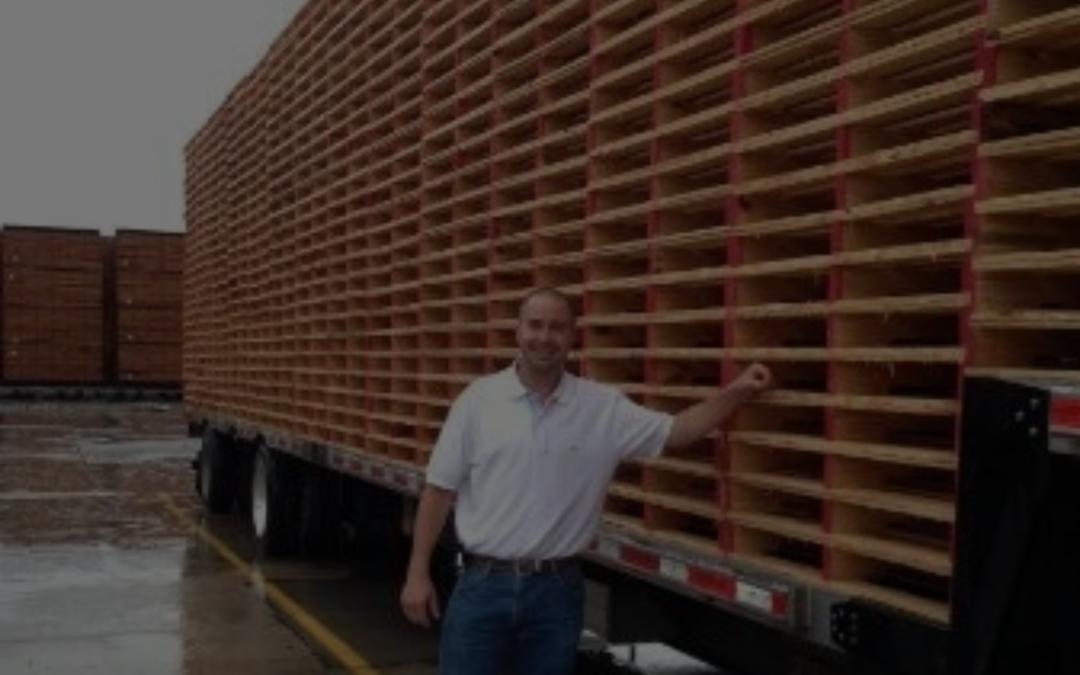“Over the last three to four years, we’ve been developing a Lean Manufacturing culture focusing on finance, operations, and safety,” explains Bo Reese, plant manager. “We used to run one of our saw lines with seven (7) people. Two workers were at a roundtable at the exit of the band saws, one grading and one stacking the cut lumber, which are both repetitive motions that can lead to fatigue and back injuries.”
Reese saw the AIT M2L Stacker in use at another pallet company: “I couldn’t believe how consistently it ran so I called Greg Wine with Pallet Machinery, Inc.” Reese learned that the faster 25-layer per minute TS300 Stacker by AIT also consistently ran dry pine and green pine-the type of wood used in the pallets most of their customers were currently buying. The speed of the stacker and its other specs matched well with the Lean Manufacturing plans at the Hazlehurst plant.
In July 2011, PalletOne installed a TS300 Unscrambler and Stacker. They were able to replace two workers per line per shift yet have maintained the same level of productivity while reducing the likelihood of injury to the workers. According to Reese, “Because we run two shifts, we cut our labor by 20 hours per shift. We regained our investment in the stacker in less than one year and limited a safety concern. Even with stock changes, we have very little WIP cluttering the plant.”
The TS300 Stacker at PalletOne runs around the clock with 99% uptime. It is only offline when the line is being cleaned. “We evaluated all the stackers on the market and no other machine runs as many types of lumber as well,” Reese said. Further, PalletOne of Hazlehurst has over 300 pallet and packaging products for customers in the produce, beverage, pharmaceutical, industrial and chemical industries. “A good operator can easily understand the programming of the TS300 Stacker and can adjust the settings based on the length of the wood, dimensions, and type of wood to keep pace with the rest of the line,” Reese explains. “This has reduced our waste and maximized the productivity of our entire workspace.”
Reese describes the TS300 Stacker as “dependable.” The cost of maintenance and operation is low and predictable. Reese adds, “There is a shortage of labor in our region of the country so anything we can do to keep our lines running consistently and our teammates free from potential back injuries is a benefit that is easy to quantify.”
